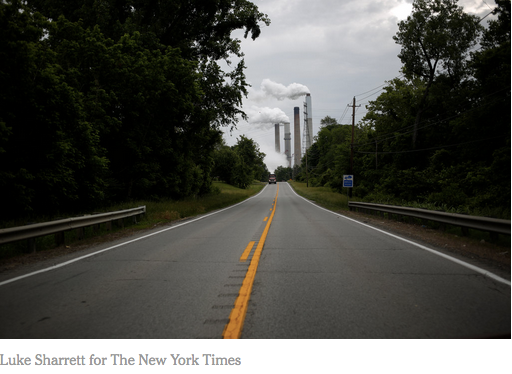The NERA study, for example, with its pessimistic take on the economic impacts of regulating greenhouse gases, projects that the efforts will cost the United States economy 2.7 million jobs by 2025 and 31.6 million by 2040.
But that’s the way the labor market works in general, with some sectors expanding at any point in time and others contracting. Right now, the retail sector is bleeding jobs as physical stores give way to more online shopping. The information-services sector shed more than a million jobs from 2001 to 2012. The share of jobs in manufacturing has been falling pretty much continuously since World War II.
So the real question is not whether some jobs involving fossil fuels will go away if greenhouse gases are regulated more stringently; what matters is whether the jobs that emerge to replace them will pay better or worse.
If no jobs emerge at all and unemployment rises, then that’s a failure of macroeconomic stabilization — which is to say, it’s the Federal Reserve’s fault for keeping interest rates too high.
There’s a parallel with trade policy. Major trade deals have minimal effects on the overall number of jobs, and increase incomes on average, but may have a particularly large job-reducing effects in particular locations and among particular workers.
In other words, it’s one thing to say that jobs drilling for oil and mining coal will go away even as jobs installing solar panels will be created. That sounds comforting — but if different people in different locations are doing those jobs, there can still be disruption.
And beyond the complexity of modeling how climate policies will affect the economy, and the judgment call of how much value to assign to preserving existing jobs, there is an even bigger question.
In pessimistic forecasts of the impact of climate change, the cost to adapt to a warming planet will be eventually be huge, potentially including vast expenditures to try to protect cities from rising seas, adjusting agriculture to new climate patterns, and countless other changes to business and the economy.




